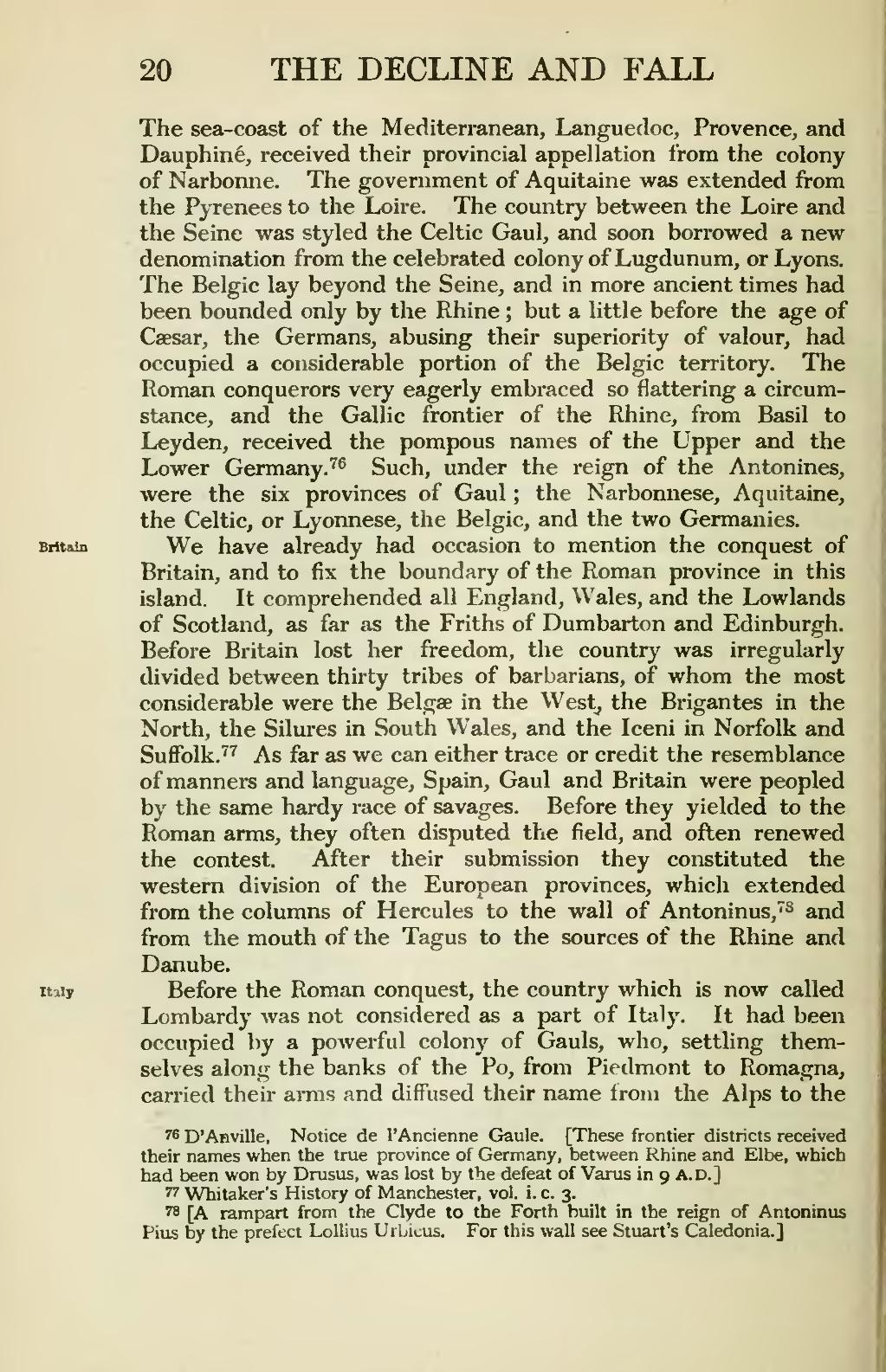The sea-coast of the Mediterranean, Languedoc, Provence, and Dauphiné, received their provincial appellation from the colony of Narbonne. The government of Aquitaine was extended from the Pyrenees to the Loire. The country between the Loire and the Seine was styled the Celtic Gaul, and soon borrowed a new denomination from the celebrated colony of Lugdunum, or Lyons. The Belgic lay beyond the Seine, and in more ancient times had been bounded only by the Rhine; but a little before the age of Cæsar, the Germans, abusing their superiority of valour, had occupied a considerable portion of the Belgic territory. The Roman conquerors very eagerly embraced so flattering a circumstance, and the Gallic frontier of the Rhine, from Basil to Leyden, received the pompous names of the Upper and the Lower Germany.[1] Such, under the reign of the Antonines, were the six provinces of Gaul; the Narbonnese, Aquitaine, the Celtic, or Lyonnese, the Belgic, and the two Germanies.
Britain We have already had occasion to mention the conquest of Britain, and to fix the boundary of the Roman province in this island. It comprehended all England, Wales, and the Lowlands of Scotland, as far as the Friths of Dumbarton and Edinburgh. Before Britain lost her freedom, the country was irregularly divided between thirty tribes of barbarians, of whom the most considerable were the Belgæ in the West, the Brigantes in the North, the Silures in South Wales, and the Iceni in Norfolk and Suffolk. [2] As far as we can either trace or credit the resemblance of manners and language, Spain, Gaul and Britain were peopled by the same hardy race of savages. Before they yielded to the Roman arms, they often disputed the field, and often renewed the contest. After their submission they constituted the western division of the European provinces, which extended from the columns of Hercules to the wall of Antoninus, [3] and from the mouth of the Tagus to the sources of the Rhine and Danube.
Italy Before the Roman conquest, the country which is now called Lombardy was not considered as a part of Italy. It had been occupied by a powerful colony of Gauls, who, settling themselves along the banks of the Po, from Piedmont to Romagna, carried their arms and diffused their name from the Alps to the
- ↑ D'Anville, Notice de l'Ancienne Gaule. [These frontier districts received their names when the true province of Germany, between Rhine and Elbe, which had been won by Drusus, was lost by the defeat of Varus in 9 A.D.]
- ↑ Whitaker's History of Manchester, vol. i. c. 3.
- ↑ [A rampart from the Clyde to the Forth built in the reign of Antoninus Pius by the prefect Lollius Urbicus. For this wall see Stuart's Caledonia.]
